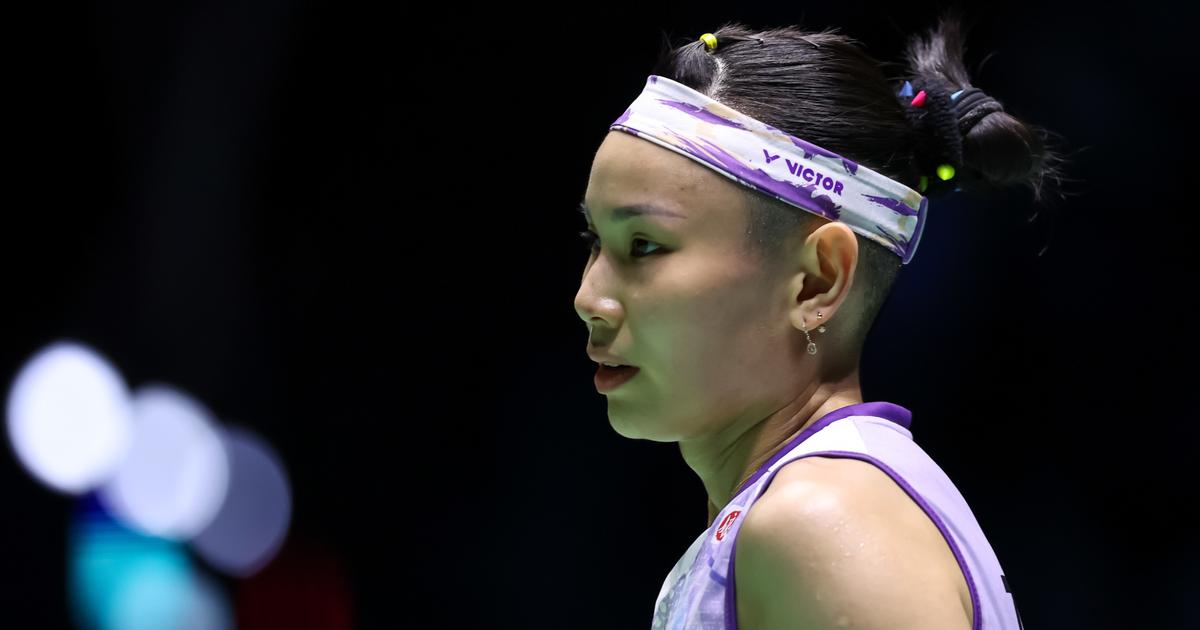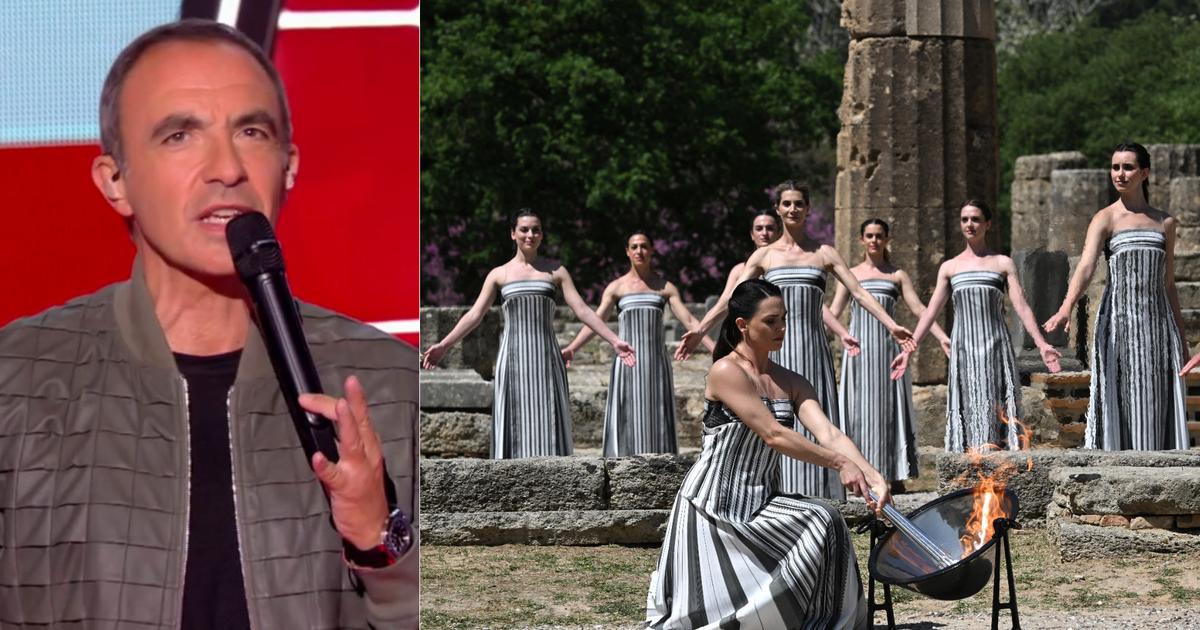Enlarge image
The Indonesians Apriyani Rahayu and Greysia Polii celebrate their victory against a Chinese double: "We know about the burden"
Photo: LEONHARD FOEGER / REUTERS
The trend is clear, and it is not surprising either.
Asia, the most populous continent, is gradually taking control of the Olympic Games.
In the middle of the Far Eastern cycle (Pyeongchang 2018, Tokyo, Beijing 2022), China and Japan lead the medal table with 15 gold each before the seventh day of competition, just ahead of the USA (14).
If it stays that way, two Asian countries would occupy the podium for the first time in history.
So when the balance in world sport shifts, it becomes as evident in few places as in the badminton hall.
24 athletes will compete there today, Friday, in women's singles (quarter-finals), men's doubles (semi-finals) and mixed (final, game for third place).
All 24 are from Asia.
You will see them scream, laugh and despair, only the audience will be missing, which usually makes this sport such a spectacle in Asia. With a passion like football in Europe, you will be amazed when the players accelerate the shuttlecock from the jump to up to 493 kilometers per hour while crashing. According to the Guinness Book, that is the world record. Of course, it was set up by an Asian, double specialist Tan Boon Heong from Malaysia.
The special thing about the Asian passion for badminton is that it encompasses larger parts of the vast continent than any other sport. The most successful nation is China, which can draw on a reservoir of around 100 million (hobby) players and provides both pairs in the mixed final (8.30 a.m. CET). But the game is also considered the second most popular sport after cricket in India: the subcontinent is excited these days with the reigning world champion Sindhu Pusarla, Olympic runner-up in 2016 and, thanks to an estimated annual income of an estimated five million euros, one of the best-paid female athletes in the world. Badminton is the undisputed national sport in Asia's third largest country, Indonesia. There, as the Spaniard Carolina Marín likes to say, "I'm something like Lionel Messi or Cristiano Ronaldo with us."who cannot step outside the door unobserved.
Marín, out injured in Tokyo, has been responsible for one of only two non-Asian gold medals in 34 decisions since the sport became Olympic in 1992.
In 2016 she won in Rio.
The other exception was in 1996, when today's world association president Poul-Erik Høyer Larsen from Denmark triumphed.
Import from India
In the search for the origins of Asian dominance, one ends up in history on the one hand.
Why exactly the children in the English Badminton House began to hit a shuttlecock back and forth during the cold winter of 1863 (according to one of the legends) is a matter of dispute.
But it is believed that Empire officers imported the game from India.
Because of its popularity in the Indian city of the same name, it was also initially called Poona.
Forerunners can also be found in Japan with its Hanetsuki, which is still folklorically celebrated today.
On the other hand, there are practical reasons.
You don't need a lot of money for badminton.
And, helpful in the narrow Asian metropolises, not much space either.
Success does the rest, the badminton stars are folk heroes.
In Malaysia, a biopic about ex-Asian champion Lee Chong Wei and his rise out of poverty stayed in the cinema charts for weeks in 2018, and the flick also went well in China and Taiwan.
Lee's epochal duels with the Chinese Lin Dan kept the continent in suspense for a decade and are considered the golden era of the sport.
Lin Dan always won her Olympic and World Cup finals, and when Lee finally beat him in the 2016 semifinals, he was defeated by his compatriot Chen Long in the finals.
But there was also healthy competition outside the hall - for the faster cars, the more expensive watches or the more rebellious attitude.
Two pop stars who, with their individualism, questioned classic behavior patterns and so particularly impressed the youth in many places.
The sensation
After the end of her time, no new dominator from Asia has established itself in the men's singles. In the Olympic tournament this means a historic opportunity for two representatives from the European badminton stronghold of Denmark. Viktor Axelsen and Anders Antonsen are currently number two and three in the world rankings - and number one, the Japanese Kento Momota, has already been eliminated.
His defeat to Korean Kwang-hee Heo in the group stage was considered one of the greatest sensations in badminton history. Even if she had good reasons. Momota had to survive a serious car accident at the beginning of 2020, this year also Covid, and then there were the expectations that also seemed to inhibit many other Japanese stars at home games such as gymnastics legend Kohei Uchimura, table tennis prodigy Tomokazu Harimoto or tennis celebrity Naomi Osaka. "The pressure on him was incredible," says Axelsen.
Pressure - a theme of these games. The Indonesians have always felt it in badminton. After disappointing results and especially the end of the favored men's duo Marcus Fernaldi Gideon and Kevin Sanjaya Sukamuljo - called "The Minions" because of their height - against a Malaysian couple, the quarter-finals for the Indonesian women's duo Greysia Polii and Apriyani Rahayu became a national mission on Thursday . "Our whole team has been waiting for it," said Polii after the hard-fought prestige win against two Chinese women. “We know the burden on us. We try not to think about it. "
A story from the other end of the world might help.
As the third non-Asian next to the two Danes, Kevin Cordón from Guatemala surprisingly made his way into the quarter-finals.
He once left his parents' house in the country at the age of twelve to pursue his dream of participating in the Badminton Olympics in the capital.
"My parents had no idea about badminton, they just said: 'Okay, go. But no alcohol, no drugs!'" At the age of 34, Cordón is now for the fourth time - and suddenly has a medal chance.
His recipe?
"Just have fun as if I were playing a Playstation or soccer."
Clear.
But it's not that easy in Asia when it comes to badminton.










/cloudfront-eu-central-1.images.arcpublishing.com/prisa/S7UVDTX7DREC7DXVCZN6MEKGBY.jpg)




